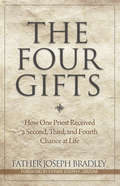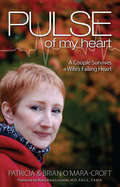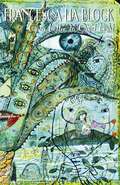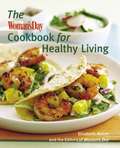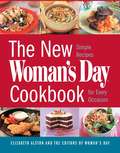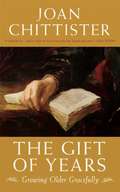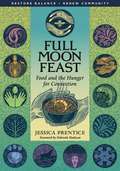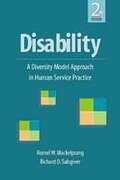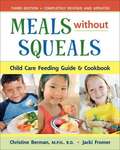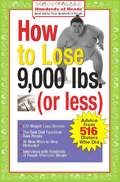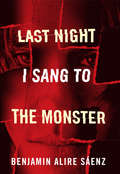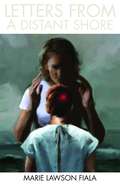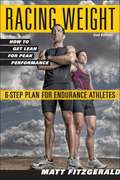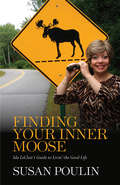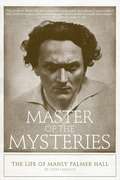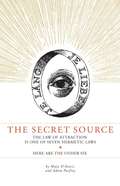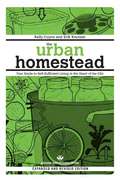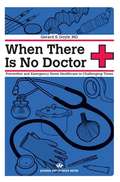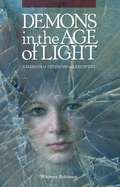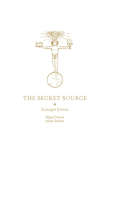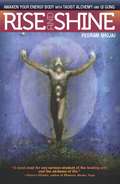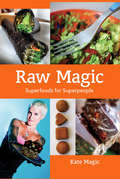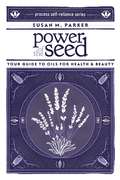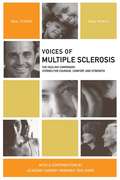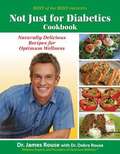- Table View
- List View
The Four Gifts
by Joseph BradleyBy all rights, Father Joseph Bradley should be dead. If past usage of beer, marijuana, and cocaine didn't do the trick, then certainly heart failure should have. Instead, by the grace of God, he is alive, clean, sober, and a functioning Catholic priest with another man's heart beating in his chest. But it came at a huge cost. While Joe was in his late teens, his father died suddenly. The loss was devastating and Joe's emotional desolation found escapist bliss in a beer bottle and cocaine vial, and he pledged irrevocable devotion to both. The slide into the abyss was ugly, and Joe finally sought help because there was nowhere else to go--which led him to serve others as a Catholic priest. The day of Joe's ordination, an old friend came to the mass and announced for all to hear, "Well, now I can say I've seen a miracle." Joe functioned for fifteen years as a sober priest before his heart gave out from the same heart disease that killed his father. But another miracle came his way, and he was blessed with a new heart--a gracious gift from a family during the most painful moment of their lives. Joe has been granted the blessing of four gifts: faith, sobriety, a new heart, and a fulfilling ministry. As Father Joe says, "Gratitude inspired this book. I owe it to people who helped rescue me from alcohol and drugs, and I owe it to my heart donor for giving me yet another chance at life."
Pulse of My Heart
by Brian O'Mara-Croft Patricia O'Mara-CroftPatty O'Mara-Croft's "widowmaker" heart attack was a cruel assault on her body, threatening the happiest years of her life. Originally misdiagnosed as a panic attack, common among women who suffer heart attacks, Patty's heart suffers permanent damage, and her precarious condition threatens to raze all joy and hope between Patty and her husband, Brian. In a recounting both informative and inspirational, heartbreaking and funny, Patty and Brian share their stories from their own unique perspectives--the first-person account of painful revelations and medical struggles and a loved one's experience of despair, hope, and renewal. Families in medical crisis are getting sucker-punched every day and need help from those who overcame it and emerge stronger than before. The dual voice of both authors represents a love that flourishes, even as Patty's health weakens and is no longer a viable candidate for a heart transplant. Pulse of My Heart is part medical mystery, part comedy of errors, part family drama, and an enduring love story. The field notes at the back of the book focus on: The sometimes-strained relationship between doctors and patient Preparing for anticipatory grief The potential for addiction when narcotics are part of the drug protocol Dealing with familial strife during a time of need Struggling with others' prayers when one's own faith is strained Trying to maintain some level of dignity in an utterly undignified environment Finding ways to be an effective parent in a blended family when illness demands so much attention
Open Letter to Quiet Light
by Francesca Lia Block"[Francesca Lia Block] is the sorceress of iridescent language."--Kirkus ReviewsOpen Letter to Quiet Light will make readers feel as if they are peering at secret writings meant for the eyes of a lover alone, but these carefully crafted lines somehow transcend the personal to touch everyone who has experienced this kind of consuming, wrenching love.In these fiercely passionate, devastatingly revealing, sometimes spiritual, and often painful poems, Francesca Lia Block describes in fiery detail the rise and demise of a year-long love affair. Her rich use of language infused with the power of sex and spirit finally paint a transcendent, almost mythic portrait of the way two wounded people--both searching for connection--find each other, collide, and eventually separate. The words seem to bleed onto the page and even the most graphic moments have a devotional quality filled with nuanced expression and unbridled intimacy.Francesca Lia Block is renowned for her groundbreaking literary works, including the best-selling Weetzie Bat. Her writing transports readers through the harsh landscapes of contemporary life to realms of the senses where love is a saving grace. She lives in Los Angeles.
The Woman's Day Cookbook for Healthy Living
by Elizabeth AlstonThis book serves as a guide for those who want a healthy lifestyle without giving up on delicious meals, offering a simple, enjoyable approach to delicious and healthful cooking that anyone can master. Complete with exercise tips and sections on cooking methods.
The New Woman's Day Cookbook
by Elizabeth AlstonWoman's Day presents this must-have collection of over 350 classic and contemporary recipes for wholesome meals with nutritious ingredients.
The Gift of Years: Growing Older Gracefully
by Joan ChittisterJoan Chittister, one of our most celebrated spiritual writers, invites us to embrace older age as a natural part of life that is both active and contemplative, productive and reflective, and deeply rewarding. She encourages us to cherish the blessings of aging and to overcome its challenges, and shows us that this is a special period of life--maybe the most special of them all. Older age gives us wisdom, freedom, and prosperity of another kind. Older age enlightens--not simply ourselves, but also those around us. To live these years well, we need to look at every one of them head up and alive. Life is not about the length of years we manage to eke out of it. It is about living into the values offered every day; about growing older with grace. Not only accepting but also celebrating getting old, this inspirational and illuminating work looks at the many facets of the aging process, from purposes and challenges to struggles and surprises. Central throughout is a call to cherish the blessing of aging as a natural part of life that is active, productive, and deeply rewarding. Perhaps the most important dimension revealed lies in the awareness that there is a purpose to aging and intention built into every stage of life. Chittister reflects on many key issues, including the temptation towards isolation, the need to stay involved, the importance of health and well-being, what happens when old relationships end or shift, the fear of tomorrow, and the mystery of forever. Readers are encouraged to surmount their fears of getting older and find beauty in aging well.
Full Moon Feast: Food and the Hunger for Connection
by Jessica PrenticeA passionate call for reconnecting with our food, ourselves, the land, and our souls. With recipes for every season.
Disability: A Diversity Model Approach in Human Service Practice (Second Edition)
by Romel Mackelprang Richard SalsgiverThis comprehensive text fills a huge void in the field! Romel W. Mackelprang and Richard O. Salsgiver introduce an empowerment approach to working with persons with disabilities -- a direction that lights the way for human service workers and provides clients with greater independence and resilience. The authors are ardent in their desire to empower persons with disabilities by building on their strengths. This comprehensive book features a ground-breaking, strengths-based approach that fills a void in the available material on this topic, and thoroughly prepares helpers to work successfully with persons who have disabilities.
Meals Without Squeals: Child Care Feeding Guide and Cookbook (3rd Edition)
by Christine Berman Jacki FromerAn essential resource, in a new expanded edition for parents and childcare providers. This book combines nutrition information with menus and recipes, while offering solutions to common feeding problems. With material on the new Food Guide Pyramid, it helps caregivers meet the nutritional needs of children in the 1990s.
How to Lose 9,000 lbs. (or Less)
by Jennifer Bright Reich Joan BuchbinderIf two heads are supposed to be better than one, how about 516 heads? That's the number of contributors to this inspiring book in the popular How to Survive series. How to Lose 9,000 lbs or Less collects real advice and stories from people who've fought on the front lines of the diet wars and won. Topics include motivation (how to turn that nonstop diet chatter into action); brand-name diets (which ones work best); exercise (fun ways to get fit); medical help (from pills to surgery); and sticking with it (how to keep the weight off). The book encourages and entertains with surprising but practical insights such as eating a pickle to counter sugar cravings or putting a picture of an exercise guru on the treadmill for accountability.
Last Night I Sang to the Monster
by Benjamin Alire Sáenz<P>Zach is eighteen. He is bright and articulate. He's also an alcoholic and in rehab instead of high school, but he doesn't remember how he got there. He's not sure he wants to remember. Something bad must have happened. Something really, really bad. Remembering sucks and being alive--well, what's up with that? <P>I have it in my head that when we're born, God writes things down on our hearts. See, on some people's hearts he writes Happy and on some people's hearts he writes Sad and on some people's hearts he writes Crazy on some people's hearts he writes Genius and on some people's hearts he writes Angry and on some people's hearts he writes Winner and on some people's hearts he writes Loser. <P>It's all like a game to him. Him. God. And it's all pretty much random. He takes out his pen and starts writing on our blank hearts. When it came to my turn, he wrote. I don't like God very much. Apparently he doesn't like me very much either. Sad <P>Benjamin Alire Sáenz is a prolific novelist, poet, and author of children's books. Sammy and Juliana in Hollywood, his first novel for young adults, was a finalist for the Los Angeles Times Book Prize and a Young Adult Library Services Association Top Ten Books for Young Adults pick in 2005.
Letters from a Distant Shore
by Marie Lawson FialaTragedy shattered Marie Lawson Fiala's life as wife, mother and lawyer when her 13-year old son, Jeremy, was felled by a massive hemorrhage from a ruptured artery deep in his brain. Within an hour, Jeremy was in a coma, sustained only by machines. This memoir of a mother's ferocious care, devastating loss and prayerful transcendence focuses on bringing her son back from the edge. The suspense is relentless and the author's observations as sharp as a scalpel.
Racing Weight: How to Get Lean for Peak Performance (2nd Edition)
by Matt FitzgeraldRacing Weight is a proven weight-management program designed specifically for endurance athletes. Revealing new research and drawing from the best practices of elite athletes, coach and nutritionist Matt Fitzgerald lays out six easy steps to help cyclists, triathletes, and runners lose weight without harming their training. This comprehensive and science-based program shows athletes the best ways to lose weight and avoid the common lifestyle and training hang-ups that keep new PRs out of reach. The updated Racing Weight program helps athletes: Improve diet quality Manage appetite Balance energy sources Easily monitor weight and performance Time nutrition throughout the day Train to get--and stay--lean Racing Weight offers practical tools to make weight management easy. Fitzgerald's no-nonsense Diet Quality Score improves diet without counting calories. Racing Weight superfoods are diet foods high in the nutrients athletes need for training. Supplemental strength training workouts can accelerate changes in body composition. Daily food diaries from 18 pro athletes reveal how the elites maintain an athletic diet while managing appetite. Athletes know that every extra pound wastes energy and hurts performance. With Racing Weight, cyclists, triathletes, and runners have a simple program and practical tools to hit their target numbers on both the race course and the scale.
Finding Your Inner Moose: Ida Leclair's Guide To Livin' The Good Life
by Susan PoulinMeet Ida LeClair, the funniest woman in Maine. Ida is also a newly minted "Certified Maine Life Guide" who wants to help you live a better, happier life. Ida is a lifelong resident of Mahoosuc Mills, a hard-to-find, but oh-so-familiar town in Western Maine, where she lives in a tidy and tastefully decorated double-wide with high school sweetheart Charlie and adorable dog Scamp. Most importantly, Ida (a.k.a. the alter ego of popular performer Susan Poulin) is a daughter, sister, wife, and best friend who draws upon her experiences (as well as those of the noble and majestic moose) to offer practical and hilarious advice on relationships, physical fitness, stress, housecleaning, work, shopping, fun, and more. (If you are looking for impractical, woo-woo advice from a glammed-up, over-educated, fancy-schmancy life coach, just keep looking!) Finding Your Inner Moose features such sections as: What Did I Do Wrong to Deserve this Turkey Gobbler Neck; How Many Points in Cabbage Soup?; I Can't Die Today Because if Anyone Saw the State of My House I'd Just Die; Feng Shui-ing the Double Wide; Slaying Energy Vampires; and Spousal Deafness. This book is 100% Ida, who, as her husband Charlie, says, "just loves giving advice to people, whether they ask for it or not!"
Master of the Mysteries
by Louis Sahagun"And for anyone wishing to learn more about Manly Hall, Louis Sahagun's gripping biography is an insightful look at the life and times of one of the last century's most important mystical thinkers."--The Fortean TimesIn 1919, a Canadian teenager with a sixth grade education arrived by train to the wilds of Los Angeles. Within a decade he had transformed himself into a world-renowned occult scholar.His name was Manly Palmer Hall, author of the landmark publication The Secret Teachings of All Ages, regarded as the best introduction to Western esoteric ideas, and the founder of the Philosophical Research Society, which houses one of the biggest occult libraries in the United States.Hall became the twentieth century's most prolific writer and speaker on ancient philosophies, mysticism, and magic, and a confidant of Hollywood celebrities and politicians. In 1990, he died--some say he was strangled--in what remains an open-ended Hollywood murder mystery worthy of Raymond Chandler.Master of The Mysteries: The Life of Manly Palmer Hall offers an intimate portrait of this elusive luminary who set as his life's work the daunting task of reconciling scientific reason with ancient wisdom--issues that seekers and scientists still struggle with today.Author Louis Sahagun draws from Hall's massive archives and a wealth of interviews to provide an insider's view of the birth of a metaphysical subculture that continues to have a profound influence on movies, television, music, books, art, and thought.
The Secret Source: Here Are the Other Six
by Adam Parfrey Maja D'Aoust Jodi WilleThe Secret Source reveals the actual occult doctrines that gave birth to "The Law of Attraction" and inspired the media phenomenon known as The Secret. Why did The Secret divulge only one of the seven Hermetic Laws? What are the others, what do they say, and how could they enrich your life? The Secret Source provides the actual texts and fascinating stories behind the "Emerald Tablet," the Kabbalistic treatise known as "The Kybalion," and Manly P. Hall's essay on the occult movement that produced it.
The Urban Homestead (Expanded & Revised Edition)
by Kelly Coyne Erik KnutzenThe expanded, updated version of the best-selling classic, with a dozen new projects."A delightfully readable and very useful guide to front- and back-yard vegetable gardening, food foraging, food preserving, chicken keeping, and other useful skills for anyone interested in taking a more active role in growing and preparing the food they eat."-BoingBoing.net"...the contemporary bible on the subject."-The New York TimesThis celebrated, essential handbook shows how to grow and preserve your own food, clean your house without toxins, raise chickens, gain energy independence, and more. Step-by-step projects, tips, and anecdotes will help get you started homesteading immediately. The Urban Homestead is also a guidebook to the larger movement and will point you to the best books and Internet resources on self-sufficiency topics.Written by city dwellers for city dwellers, this copiously illustrated, two-color instruction book proposes a paradigm shift that will improve our lives, our community, and our planet. By growing our own food and harnessing natural energy, we are planting seeds for the future of our cities.Learn how to:Grow food on a patio or balconyPreserve or ferment food and make yogurt and cheeseCompost with wormsKeep city chickensDivert your grey water to your gardenClean your house without toxinsGuerilla garden in public spacesCreate the modern homestead of your dreams
When There Is No Doctor
by Gerard S. DoyleThe fifth title in Process' Self-Reliance series demystifies medical practices with a practical approach to twenty-first-century health and home medicine, particularly helpful in a financial downturn.When There Is No Doctor is smartly designed and full of medical tips and emergency suggestions. At a time when our health system has become particularly susceptible to strain, it should be no further than an arm's reach away in your household.This is a book about sustainable health, primarily having to do with your health and what you can do to protect it--in bad times certainly, but also in good. I will help you ensure the health of those you love, yourself and, should you so choose, your community, if and when the world changes. World may come to mean your little town or the whole globe. It could change for a few days or weeks, or for a few years. It could change because of a flood, financial crisis, flu pandemic, or failure of our energy procurement, production or distribution systems.I will not teach you to be a lone survivalist who anticipates doing an appendectomy on himself or a loved one on the kitchen table with a steak knife and a few spoons, although I will discuss techniques of austere and improvised medicine for really hard times.Gerard S. Doyle, MD, teaches and practices emergency medicine at the University of Wisconsin, Madison, where he also plans the hospital's response to disasters.
Demons in the Age of Light
by Whitney RobinsonWith the skill of a gifted novelist, twenty-three-year-old Whitney Robinson recounts the harrowing true story of her descent into mental illness soon after she arrived at college. Her doctor labeled the illness schizophrenia, but Whitney felt that she became possessed by a malevolent, seductive entity that attempted to influence her into harming herself and others. Institutionalized and heavily medicated, Whitney encounters other horrors and mysteries within the walls of a psychiatric hospital. Determined to release herself from pharmacological shackles, Whitney finally confronts and expels her demon through sheer will and alternative methods, including an attempted exorcism and shamanic healing. Whitney's saga parallels current discussions in the media regarding American psychiatry's dependence on drug-based treatments and the renewed interest in alternative healing methods of eastern and indigenous cultures, which, according to a recent New York Times article "The Americanization of Mental Illness," have been revealed to be at least as effective as pharmaceutically driven treatments. Whitney's story of survival and personal growth will serve as a living model for others on radio and television programs.
The Secret Source: The Law of Attraction and its Hermetic Influence Throughout the Ages
by Adam Parfrey Maja D'AoustThe Secret Source reveals the actual occult doctrines that gave birth to "The Law of Attraction" and later inspired the media phenomenon known as The Secret. Follow the trail into ancient Egypt to uncover where the law of attraction was first recorded, and how it was brought back to America to foment the New Thought movement and the prosperity cults of modern times. The new, enlarged edition will have a new section on Sex Magic and its relationship with the law of attraction. Maja D'Aoust conducts popular lectures on esoterica. Adam Parfrey is releasing this fall a visual history of fraternal orders, Ritual America.
Rise and Shine
by Pedram Shojai"Pedram Shojai is the master teacher and guide for movement, awareness, and exploration of the harmony of energy."-Don Campbell, author of The Roar of Silence and The Mozart EffectMillions of Americans are joining a holistic health revolution in which yoga, natural foods, and traditional Chinese medicine are providing potent healing alternatives to costly and often debilitating prescriptions of surgery and pharmacology.As a renowned acupuncturist, master herbalist, wellness consultant, and lifelong student of various alchemical traditions, Pedram Shojai is the first author to fuse these energetic practices with an alchemical perspective, resulting in a powerful daily practice that not only heals and invigorates your body, but expands your awareness and personal power.Rise and Shine begins with the remarkable story of Shojai's personal transformations that led him into him to his unique synthesis of spiritual and physical purification practices. Shojai then shows readers ways to activate and balance the "Subtle Body" or "Light Body"-the energy meridians of acupuncture and other energy channels. He incorporates meditation and synthesized forms of Qi Gong (Chinese energy yoga) from Taoist, Buddhist, and eastern medical traditions to teach modern audiences simple, profound methods to find balance, energy, and peace in today's world.Pedram Shojai has worked with individuals, companies, and groups for several years teaching transformative practice and meditation. He has a three DVD set out titled The Alchemy of Qi Gong (Sacred Mysteries) that recently won acclaim from The Coalition of Visionary Resources awards.
Raw Magic
by Kate MagicThere are some foods that have the power to change your life. There are certain foods that when you eat them, your body is in heaven, your cells start singing, your mind becomes ecstatic. "Yes," they cry in unison, "Yes, these are the foods that I have been waiting for. These are the foods that I have been craving, that my body has been missing my whole life." Sometimes, it is a particular nutrient you have been lacking. But more often with these foods it is their synergistic properties. They have a magical energy that comes not only from the synergy of their nutritional composition but from the way they are grown, the lands they are from, their history. Many of them are sacred plants in their countries of origin. What distinguishes Raw Magic from other raw food books is its emphasis on remarkable raw superfoods that can now be accessed at natural food stores and online. It's new, it's magic. Kate Magic is a raw food superstar in her United Kingdom home, but also often flies to North America for teachings and events. She also supervises the well-trafficked website rawliving.com.
Power of the Seed
by Susan M. ParkerFixed oils play a large part in most all commercial beauty treatments. Power of the Seed offers instruction on how to use these oils to create topical skin care, cosmetics, and massage oils. Additionally, Susan M. Parker presents advice and in-depth information on the different types, sources, uses, and structures of these precious oils. Over ninety rare and common oils are comprehensively treated, along with suggestions on how readers can use them to create their own original "recipes."Power of the Seed is the newest release of Process Media's popular Self-reliance Series that presents important DIY information in a visually enhanced easy-to-read and understand manner.Susan M. Parker is the owner and founder of Solum & Herbe, a skincare company that uses a wide range of natural oils to create nourishing, natural personal care products.
Voices of Multiple Sclerosis: Stories for Courage, Comfort and Strength
by Richard Day GoreOffering candid, heartfelt, and inspiring stories of 40 diverse individuals who have been affected by multiple sclerosis (MS), this compilation creates a connection that is vital to those dealing with the mysterious and difficult symptoms of this nerve condition. With 10,000 new cases diagnosed in the United States each year and its causes still not fully understood, these stories of personal experience act as a support group by offering advice and encouragement and creating a sense of community. The collection also features current medical information by noted experts in the fields of MS research and treatment. The resource section is packed with organizations offering hope and help for those with MS and their families and friends.
Best of the Best Presents: Naturally Delicious Recipes for Optimum Wellness
by Debra Rouse James RouseThis is another book in the Best of the Best Presents collection. And, like the other cookbooks, it features easy-to-follow instructions for tasty main courses, salads, desserts, condiments, soup and more. Although the emphasis is on healthy eating, the ingredients are familiar and the results are delicious! Other Best of the Best cookbook are available in this library.
